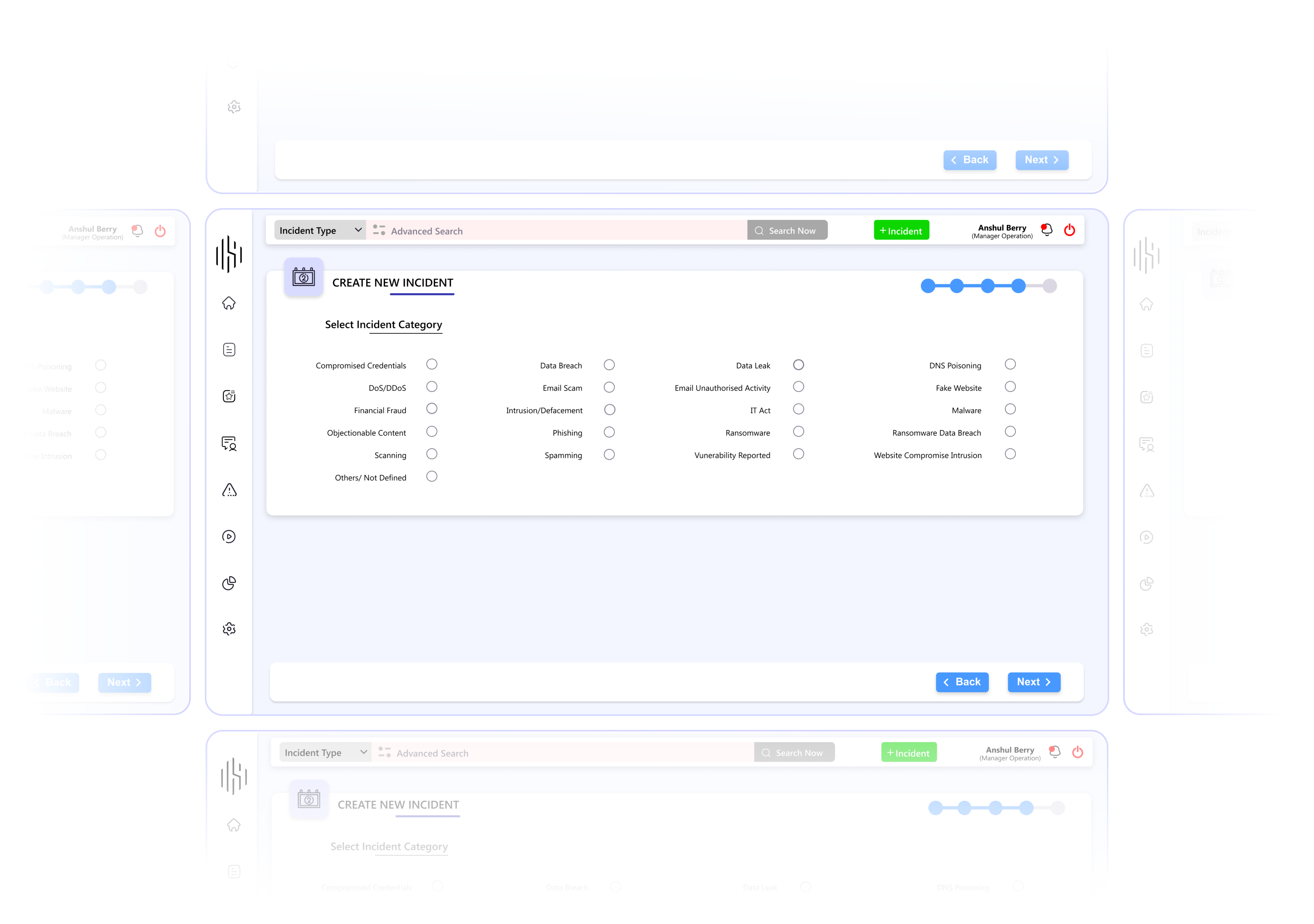
Incident Classification & Triage
We offer more than 20 predefined categories, each equipped with exhaustive data points tailored to the specific nature of incidents. This comprehensive structure allows users to record detailed information, such as severity and impact, which is crucial for prioritization. This ensures the prompt assignment of incidents to the appropriate response teams. This streamlined approach not only addresses critical issues swiftly but also maintains operational efficiency, minimizes downtime, and effectively mitigates risks.

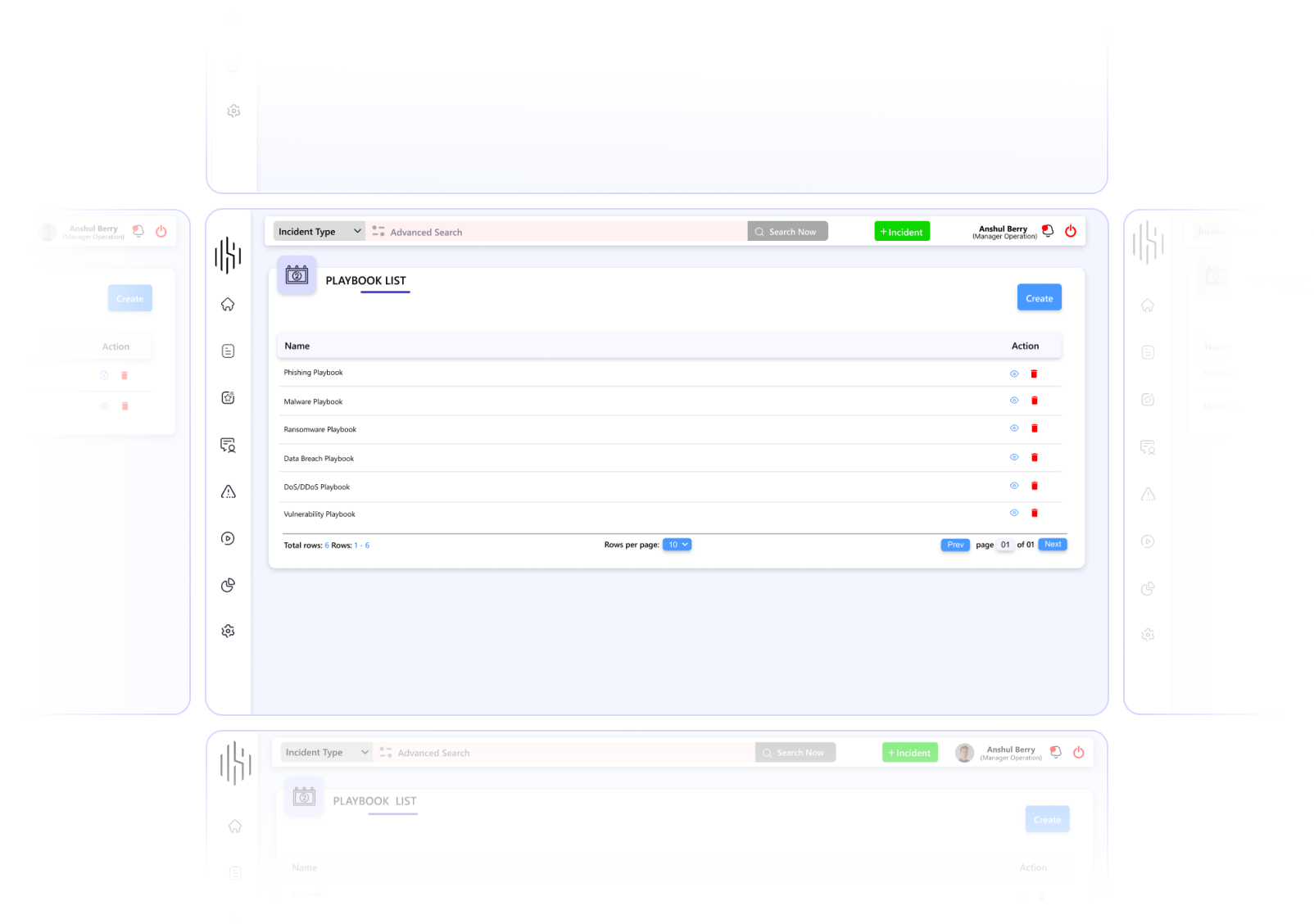
Incident Response Playbooks
INTRACIS™ delivers an extensive array of incident response playbooks, combining over 30 pre-built playbooks with the flexibility for users to create custom playbooks tailored to their specific needs. These predefined workflows and templates serve as expert guides for CERT members, facilitating a structured incident handling process. With INTRACIS™, organizations have a comprehensive playbook library at their disposal, streamlining incident response and empowering teams to respond effectively to a wide range of cybersecurity incidents.

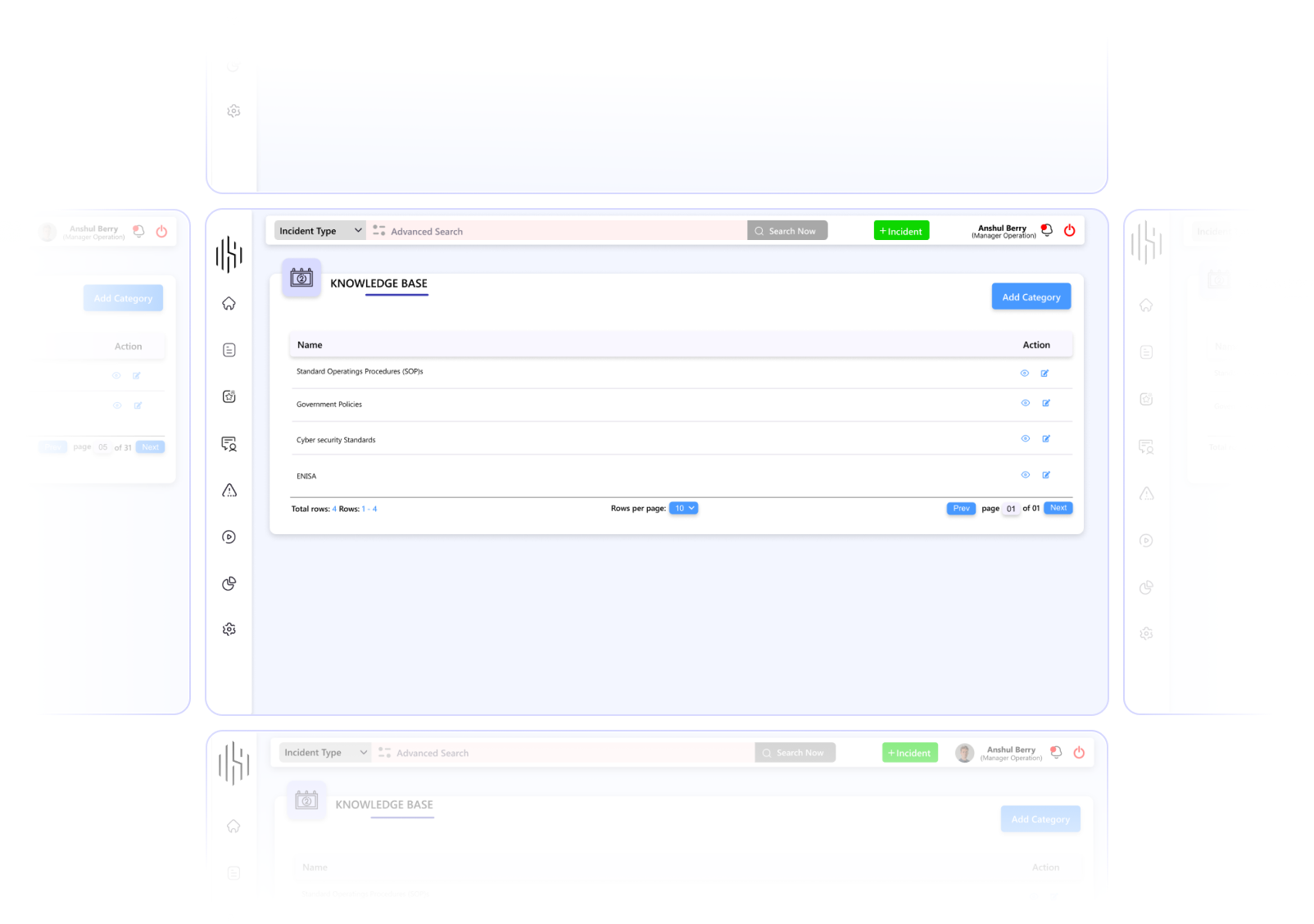
Knowledge Base and Documentation
Access a centralized knowledge base that houses all critical incident response documentation, including best practices, lessons learned, and detailed incident reports. This knowledge base becomes an invaluable asset during incident investigations, allowing you to draw upon past experiences and proven strategies. With INTRACIS™ as your central hub, you're equipped not only with the tools to manage incidents but also with the wisdom gained from past experiences, ensuring a more efficient, informed, and effective approach to incident response.

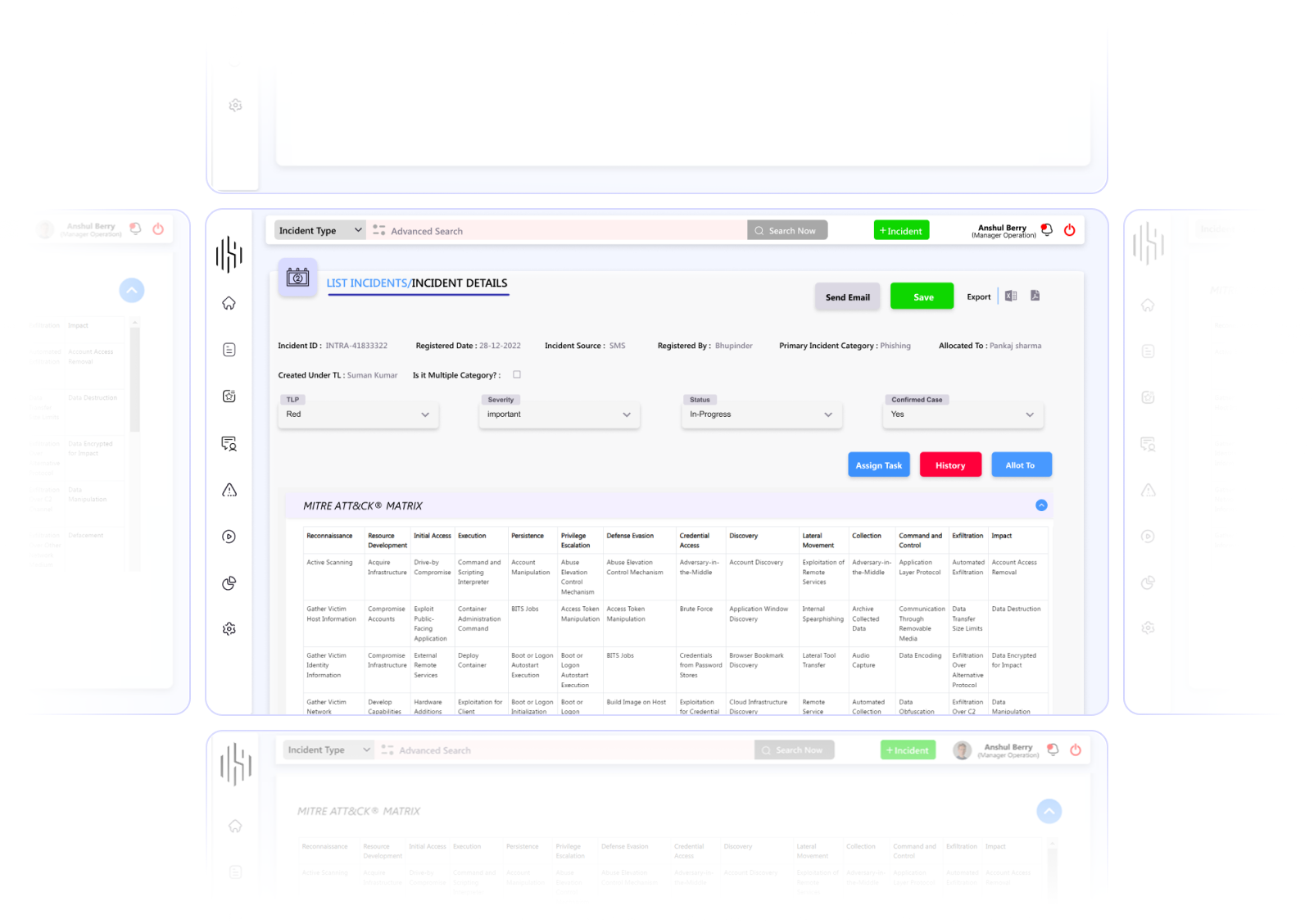
MITRE ATT&CK Framework
INTRACIS™ adheres to the MITRE ATT&CK Framework, allowing precise logging of Indicators of Compromise (IOCs) within Tactics, Techniques, and Procedures (TTPs), creating a dynamic and interconnected repository of threat intelligence. This not only enhances the visibility of potential threats but also facilitates a more proactive and strategic approach to cybersecurity. As INTRACIS™ gathers data over time, it learns and suggests potential matches to threat actors, improving detection capabilities and providing valuable support for investigations.

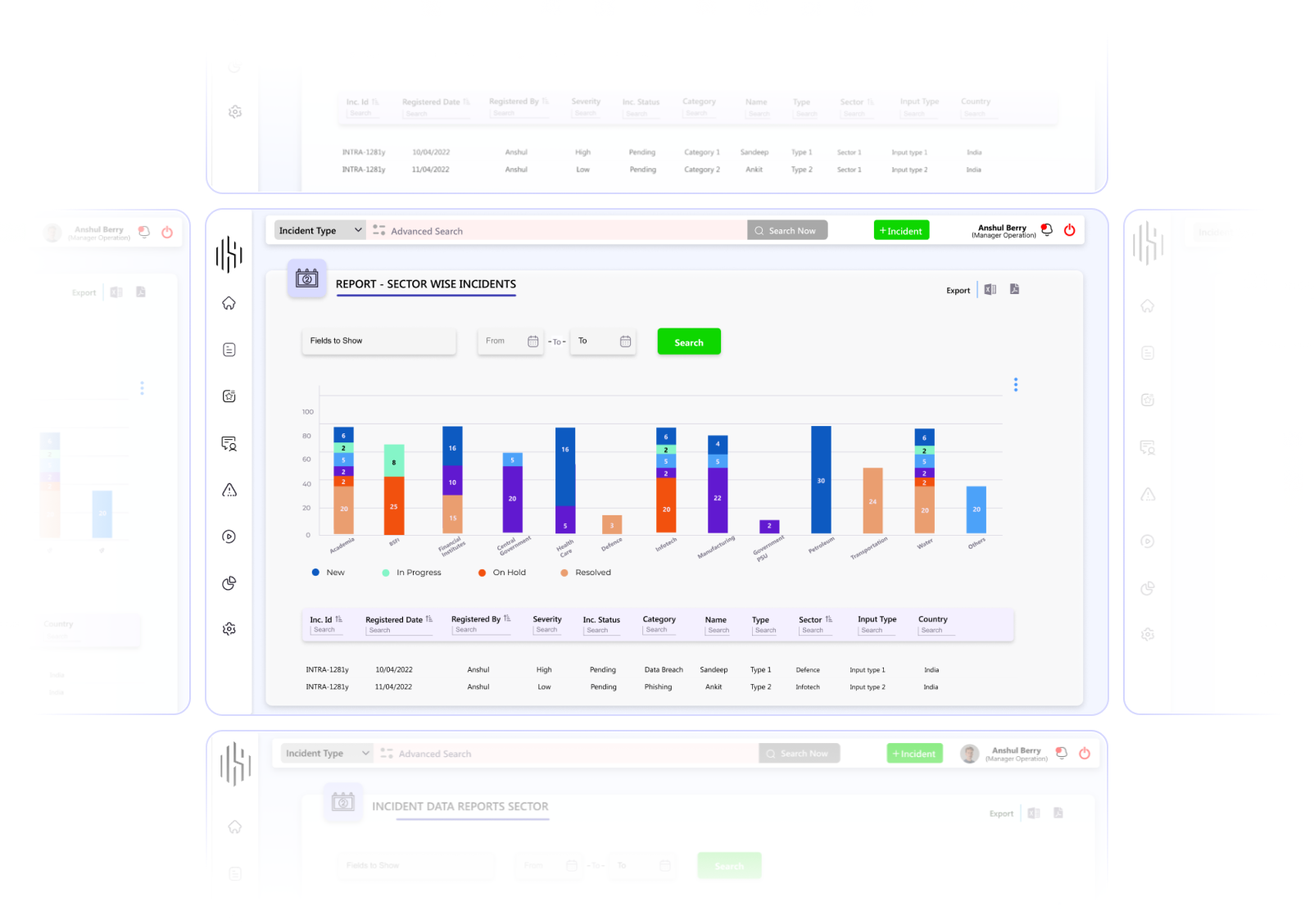
Incident Reports
INTRACIS™ provides extensive reporting capabilities to cover all aspects of incident management. Detailed and customizable reports can be generated, covering metrics such as incident category, status, and severity. Reporting options include sector-wise, shift-wise, country-wise, and user-wise, allowing for effective progress tracking and insight generation. These reports support informed decision-making and ensure thorough documentation throughout the incident lifecycle.

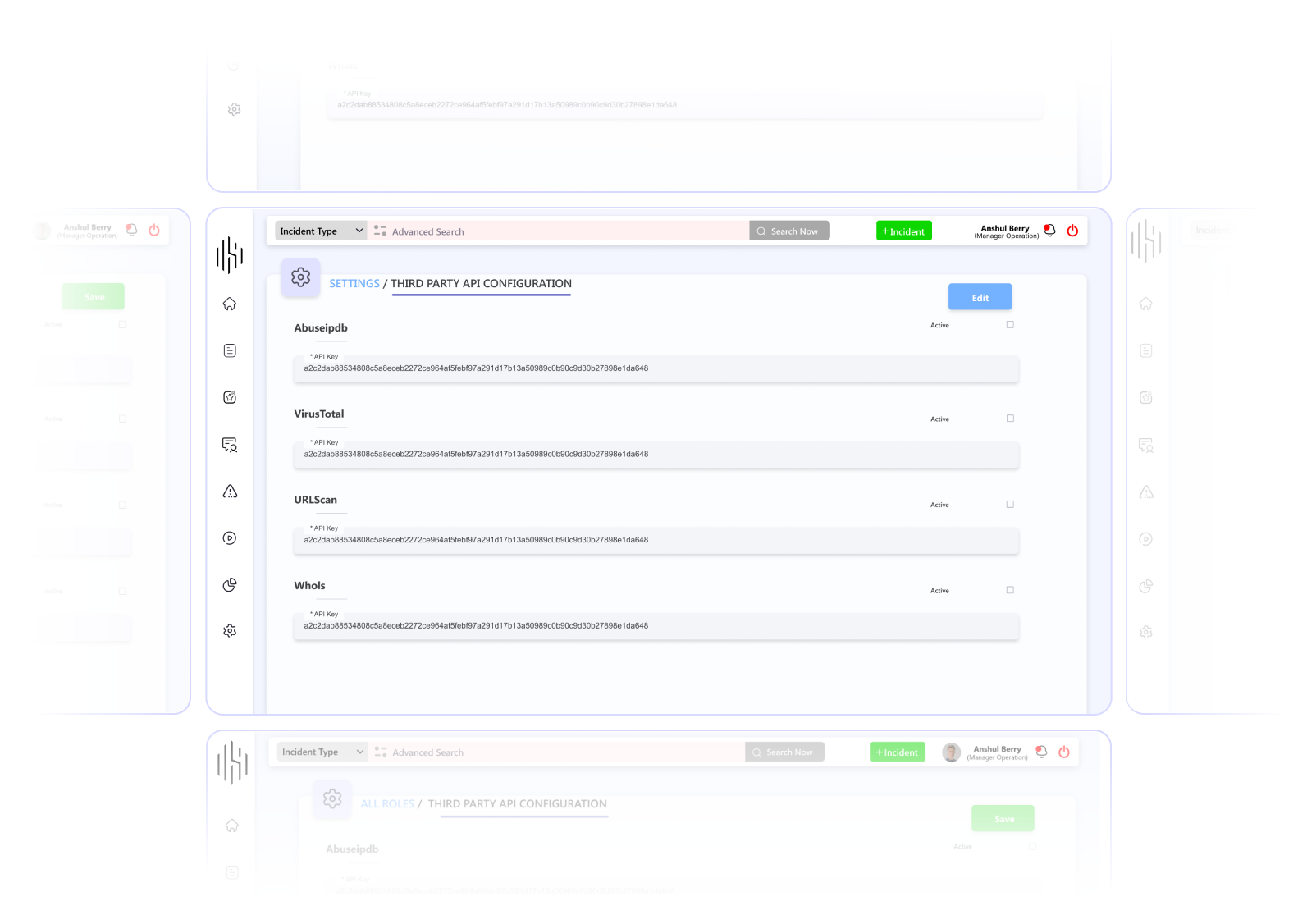
Investigative Tools
INTRACIS™ seamlessly integrates with over 40 investigative tools, including Whois, VirusTotal, UTLScan, and AbuseIPDB. By mapping these tools to incident categories, the system automates workflows for analyzing Indicators of Compromise (IOCs), streamlining investigations and enhancing threat analysis efficiency. Diverse array of security tools and technologies can often lead to complex and convoluted incident response processes. With INTRACIS™, this challenge is effectively mitigated as it acts as a central hub for all your security tools providing consolidating tool results within the platform itself.

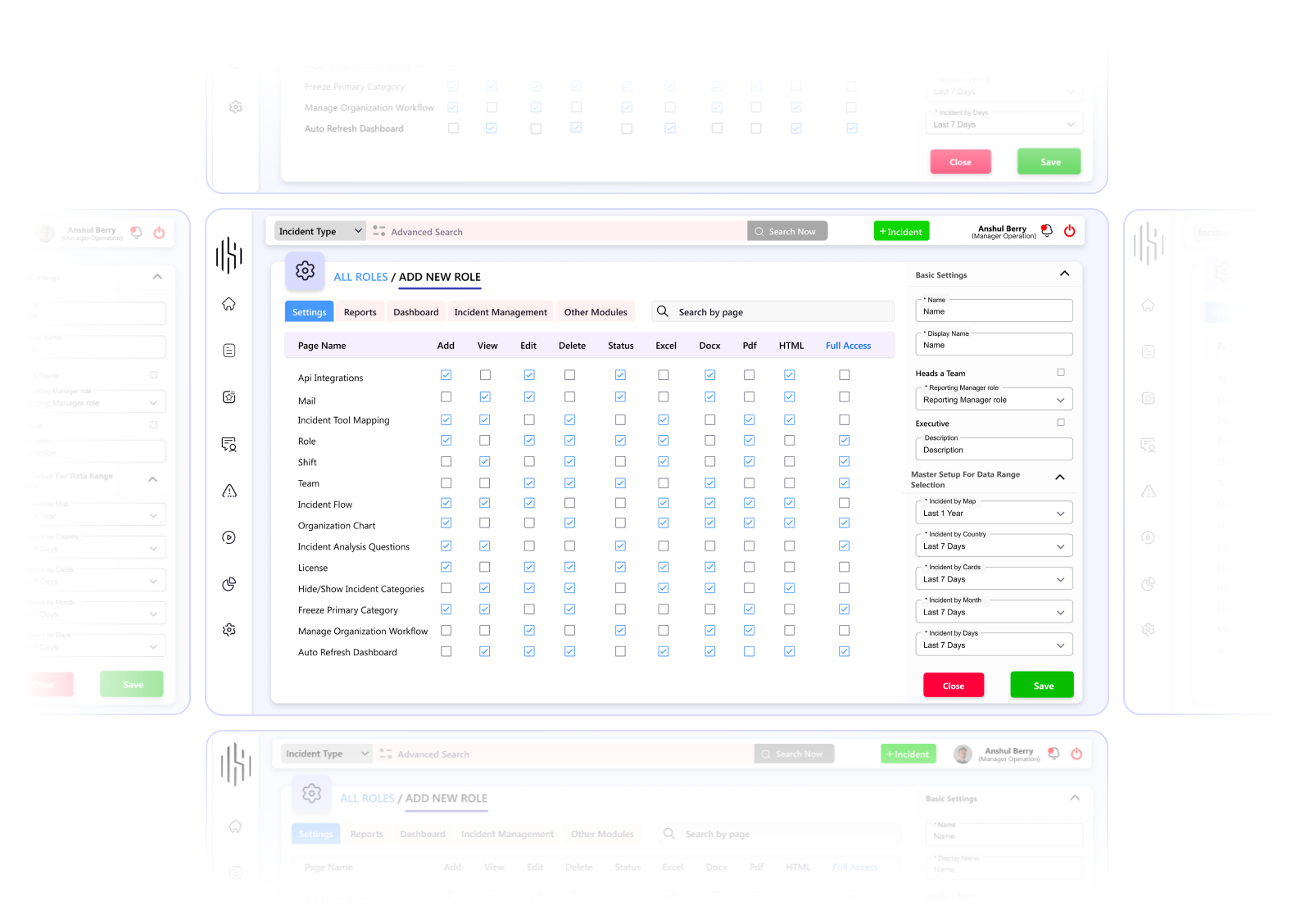
Access Control & Privileges
Implement Role-Based Access Control (RBAC) to tailor permissions according to roles within your organization. This ensures that data protection is enhanced, risks are minimized, and operational efficiency is maximized by granting appropriate access levels based on specific roles and responsibilities within the incident management process.

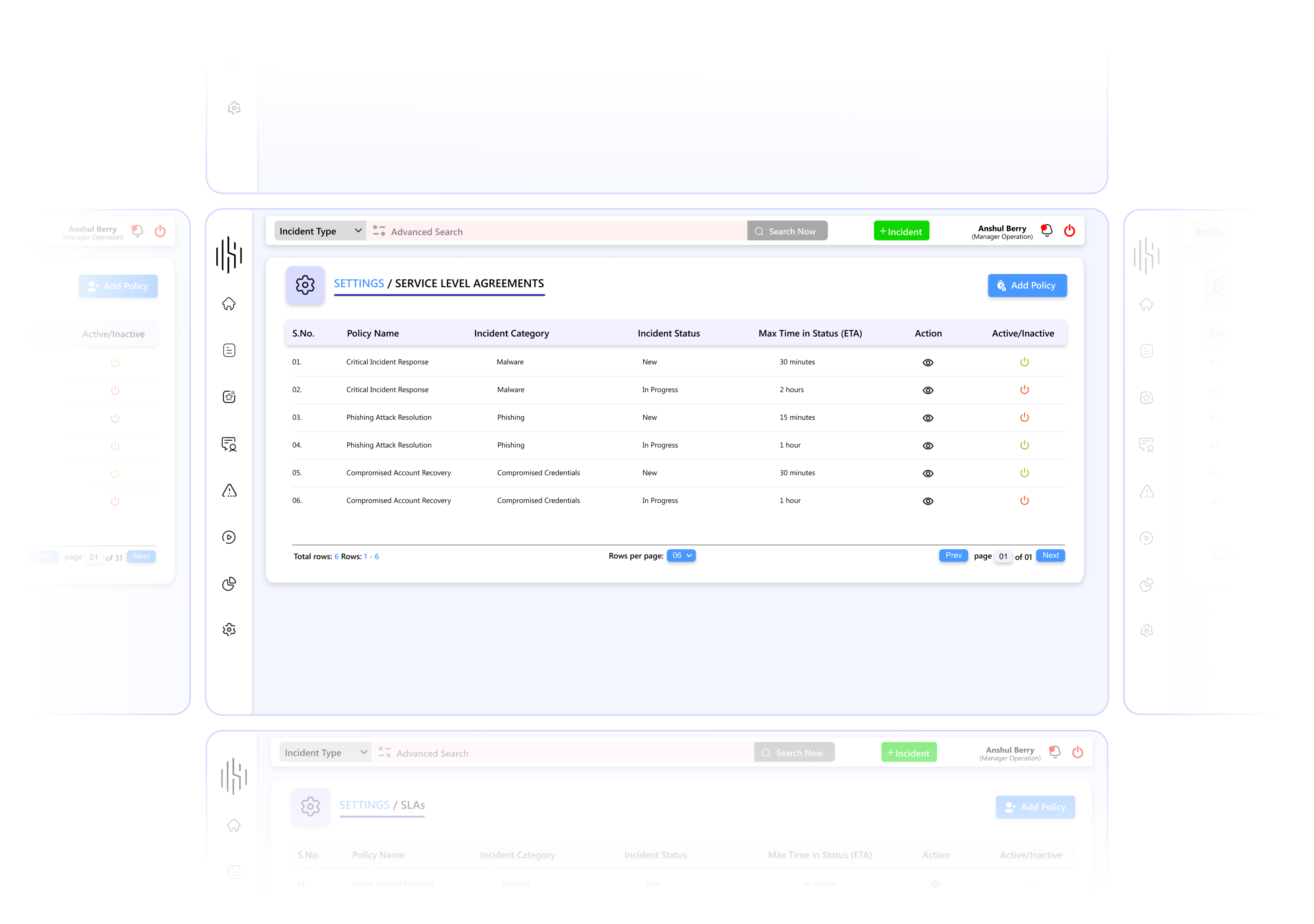
SLAs - Service Level Agreements
Define and monitor Service Level Agreements (SLAs) to ensure that incident response and resolution meet predetermined performance standards. SLAs help manage expectations and maintain consistency in handling incidents, providing clear benchmarks for response times and resolution efforts to uphold service quality.

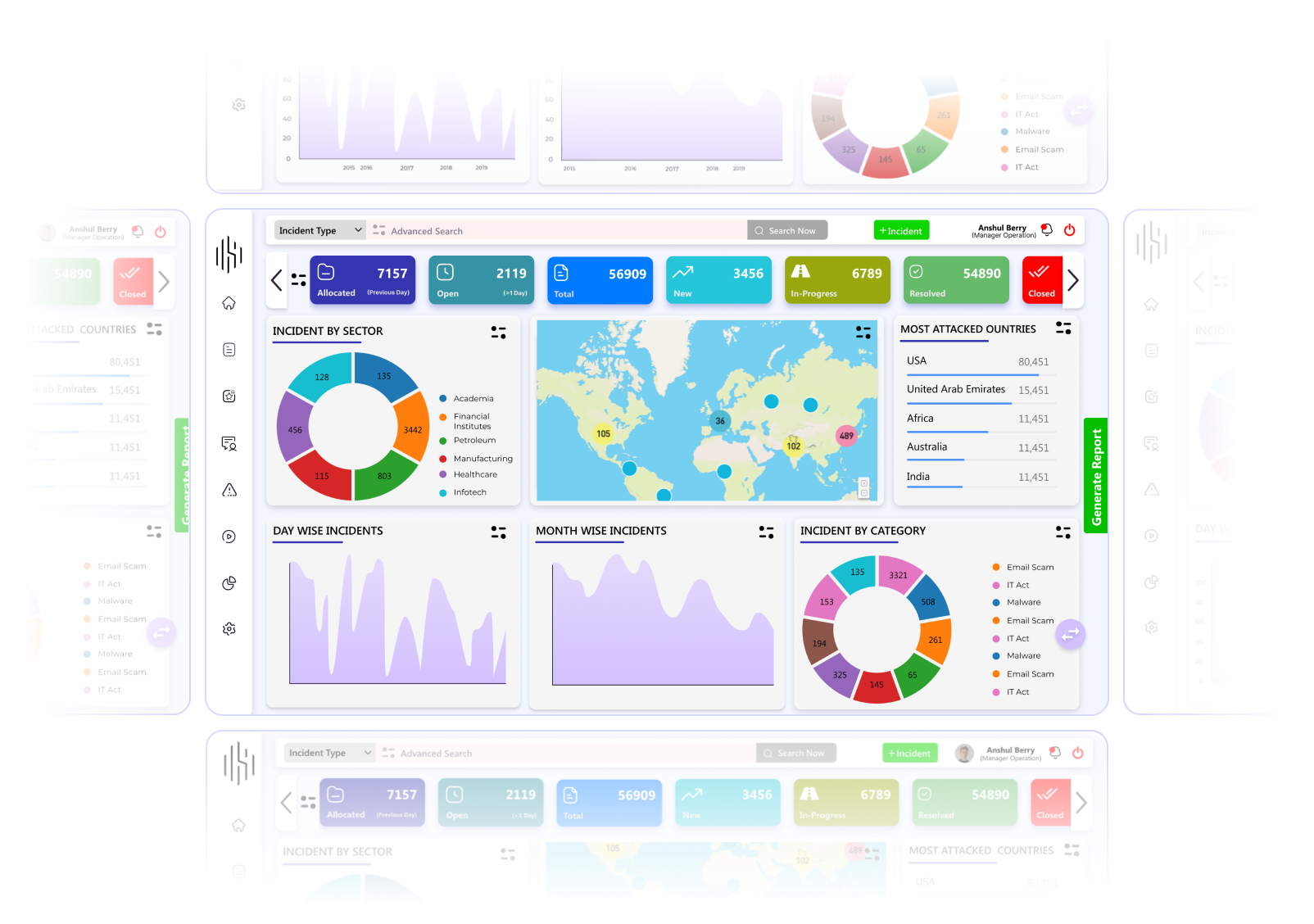
Dynamic Role-Based Dashboard
Our dynamic dashboards offer a comprehensive view of incident activity, customized to the needs of different stakeholders. The role-based design allows users to access relevant data and insights tailored to their specific responsibilities, providing a clear and holistic understanding of incident trends and statuses.


Collaboration & Communication
INTRACIS™ ensures secure and efficient communication among incident response teams with integrated collaboration features. It enables real-time teamwork for faster incident resolution and supports task assignment within incident analysis. Allocating specialized responsibilities ensures focused attention on various aspects of the incident, fostering parallel progress and quicker resolution. Robust communication features include the ability to send emails directly to stakeholders, ensuring timely updates and keeping everyone informed throughout the incident management lifecycle.

